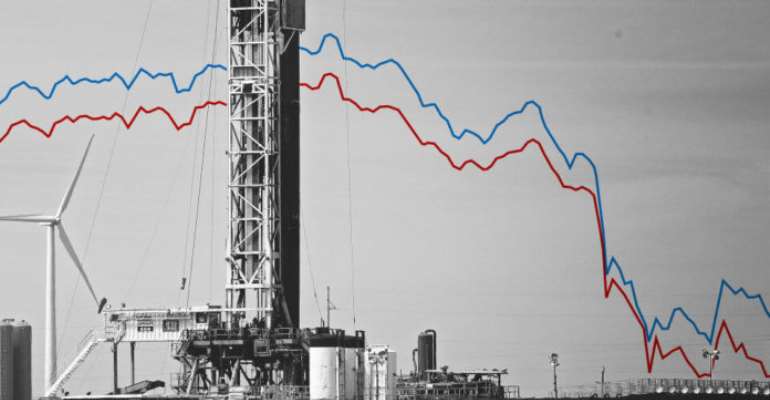Nigeria: Oil Price Crash Sparks Investor Exodus

…CBN to ensure orderly exits
Nigeria’s economy might be heading for a dramatic slump as the fallout from the oil price crash and the coronavirus pandemic have sent foreign portfolio investors (FPIs) scurrying to repatriate funds from the country.
Having already cut back its oil production in line with the revised OPEC+ agreement, the Nigeria also has to contend with a lack of buyers and storage facilities even as its crudes are now being traded at values lower than how much it costs to produce them.
Sensing difficult times ahead, FPIs have witnessed limited forex supply and have hedged the available funds for tactical plays or outright withdrawal.
Foreign investors have sold Nigerian assets at an accelerated pace since February as lockdowns to curb the coronavirus pandemic have stalled economic activity and triggered a crash in the price of oil, Nigeria’s main export.
That has put pressure on the naira currency and foreign exchange reserves. Nigeria’s dollar reserve has declined 24% to $34 billion over the last year.
Therefore, in a statement late on Sunday, the Central Bank of Nigeria (CBN) announced policies to ensure foreign investors that want to repatriate funds can exit the country in an orderly fashion, without giving any details.
The CBN weakened the naira currency on the futures market, mostly used by foreign investors to hedge against a fall versus the U.S. dollar, by an average of 73 naira across maturities, a signal it expects further depreciation.
CBN Governor, Godwin Emefiele said that where foreign exchange is available, strategic importation or service obligations would take priority, adding that the central bank wanted to galvanise local manufacturing activity.
The statement noted that the central bank had settled all dollar commitments in an orderly manner in 2015, when the last oil price rout created a similar dollar shortage.
Then, the bank introduced capital controls to avoid a mass exodus. It later created a multiple currency regime to manage pressure on the naira which culminated in a 15% devaluation two months ago as the central bank sought to converge the rates.
The naira has since hit a series of lows on the black and over-the-counter spot markets and the gap with the official market has widened, especially after the bank suspended dollar sales in the wake of a coronavirus lockdown. The oil price crash has exacerbated a shortage of dollars.
The central bank resumed forex sale to locals last week following the phased easing of a coronavirus lockdown but has yet to start sales to foreign investors, instead urging them to be patient and citing its new orderly exit policy.
Buying naira futures does not guarantee access to dollars if there is a hard currency shortage.
Analysts estimate there is pent up demand between $1.5 billion and $1.8 billion from investors looking to exit Nigeria, whose economy is now forecast to shrink by 3.4% this year.
